The post however, pertains to a more serious issue - yesterday's first anniversary of the Provincial Government of the Western Cape's initiative 110%GREEN, held on WORLD ENVIRONMENT DAY in Khayelitsha - where the ANCYL 'flung dung'.
Here, here and here - some press regarding the 'flung dung'.
[Updated press on the toilet issues: here, here and here. And here - "an honest attempt to reflect upon the divided nature of the city I’m lucky enough to call home. Cape Town, you are a beauty but you are a complex city, home to beautiful contradictions."--Kyla Herrmannsen]
Hosting the event in Khayelitsha was the right thing to do, given the inequality that still exists in our divided city. This was made obvious by the very moving message given by Mama Christina of Abalimi Bezekhaya. And the lady (whose name I did not catch) who spoke of the "three Rs": Reduce, Reuse, Recycle. So pertinent to turn our waste into assets, as long advised by ZERI's Gunter Pauli who has tirelessly promoted the "blue economy" model.
Despite the ANCYL's protest being condemned, it was very effective!
Should you have any doubt as to whether Cholera presents a real threat (or not), I highly recommend reading "Ghost Map" by Steven Johnson, in which the outbreak of the epidemic in Victorian London is described.
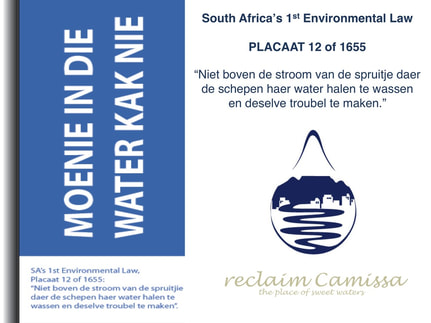 South Africa's 1st Environmental Law, Placaat 12 of 1655: "Moenie in die water kak nie" - flag designed by Landartist, Strijdom van der Merwe for RECLAIM CAMISSA's Environmental Education Campaign, in 2009.
South Africa's 1st Environmental Law, Placaat 12 of 1655: "Moenie in die water kak nie" - flag designed by Landartist, Strijdom van der Merwe for RECLAIM CAMISSA's Environmental Education Campaign, in 2009. Any spatial planning activity that does not appreciate the constraints and opportunities presented by the natural environment cannot legitimately be called planning. When land-use planning respects natural environmental conditions and processes, the benefits to a society in balance with its environment are evident. When planning efforts and development progress with disregard for landscape character and underlying natural processes, the result to both society and the environment can be devastating.
Ablutions are a daily necessity - where, in the context of the Cape Flats, heinous crimes are committed - not only to the environment, but people are robbed and raped. Toilets on the riverbanks of the Cape Flats are ludicrous. As the 1st Environmental Law of South Africa prescribed: "Moenie in die water kak nie" (Placaat 12 of 1655) ...358 years later... en ons kak nog steeds in die water!
If, instead of these chemical toilets, biogas digestors - for example http://www.biogaspro.com/ or as per the the model of AfricaGreenEnergy (AGE) Technologies (see more information here) were to be installed we could 'kill many birds with one stone'…
I suggest a campaign: POO for POWER
By locating biogas digestors in more appropriate areas and better dispersed among the settlement area, this would provide a very real opportunity for the resultant biogas to be tapped; and used for heating or cooking purposes. It could potentially be run by an entrepreneur or the CoCT or the PGWC and the resultant gas, could be supplied in canisters to individuals; or be hooked up to public areas - as described in the photographs, below. Currently, those supplying cooked food burn recycled timber, comprised of scrap - often in the form of painted/treated material which is noxious and carcinogenic.
This would protect our water resources on the Cape Flats; reduce environmental pollution and public health issues; reduce poverty; and provide a very positive outcome in terms of the green economy.
| |
Some photographs of yesterday's 110%GREEN event, in Khayelitsha.
Green economy reconciles economy with ecology.
"The latest innovation in ecology protection involves the process of including nature into economic calculations as “natural capital” in order to conserve it. Turning away from systems of pollution towards a green investment scenario, as coined by the United Nations, the world should see higher economic growth and lower unemployment." Find out more here.
Here you can see photographs of 110%GREEN's WORLD ENVIRONMENT DAY 2012 celebration, at the CTICC - when RECLAIM CAMISSA was awarded a 'Flagship Project' for the Field of Springs project.
"At this moment, we as a society are like the frog that chooses to stay in a warming pot of water as the heat is gradually turned up—unable to grasp the dire consequences of incremental change. Inch by inch, the water tables drop. Mile by mile, the rivers run dry. The trends are not good. Yet we stay the course, refusing to recognize that, for safety’s sake—for survival itself—a big change is necessary. We pretend not to know. Denial, as has been said, is not just a river in Egypt. It flows in every one of us."
--Sandra Postel, Global Water Policy Project.
This is a citizen-scientist open source database. By acknowledging and referencing the source, you are welcome to use the material and information provided here for the common good.
All research, spatial framework and proposals are the intellectual property of Caron von Zeil.

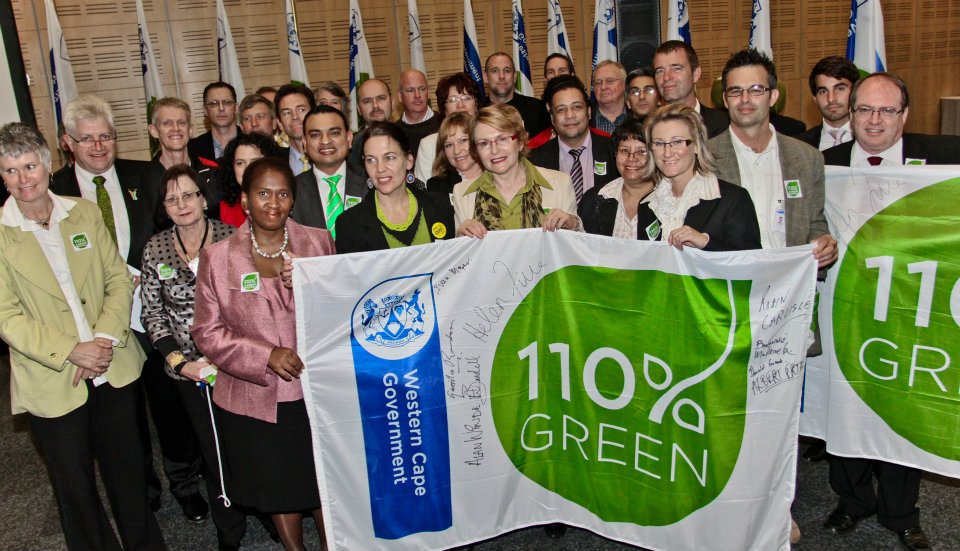
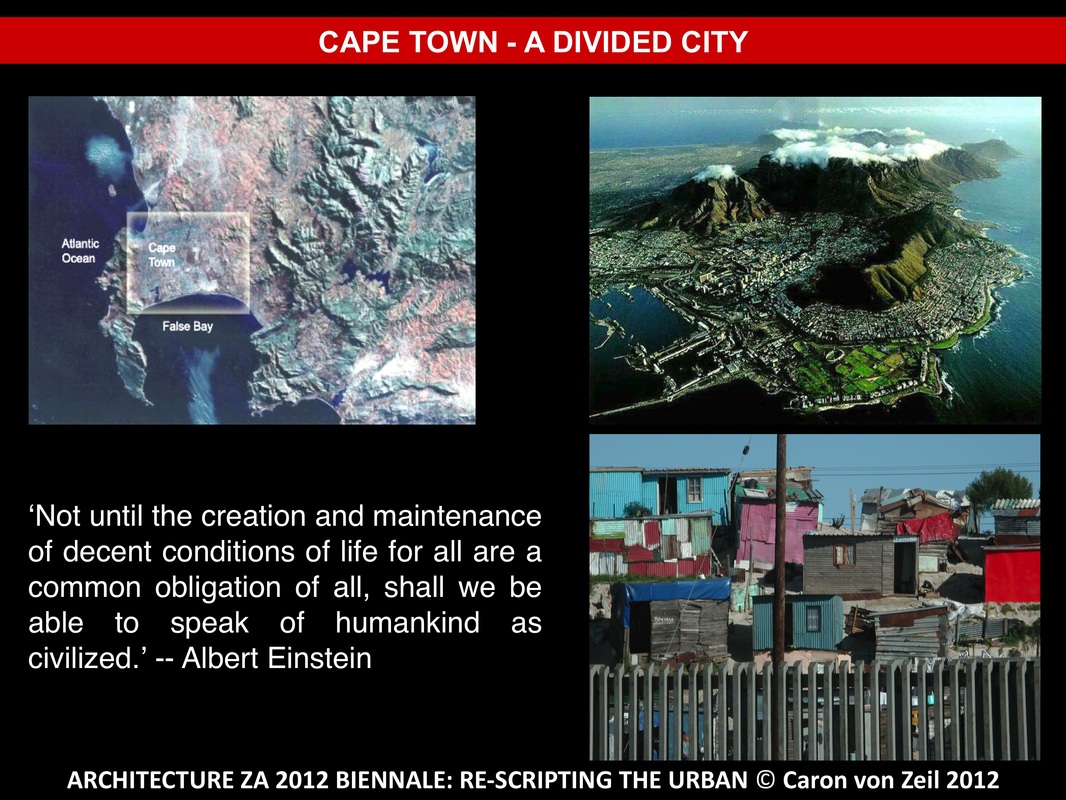
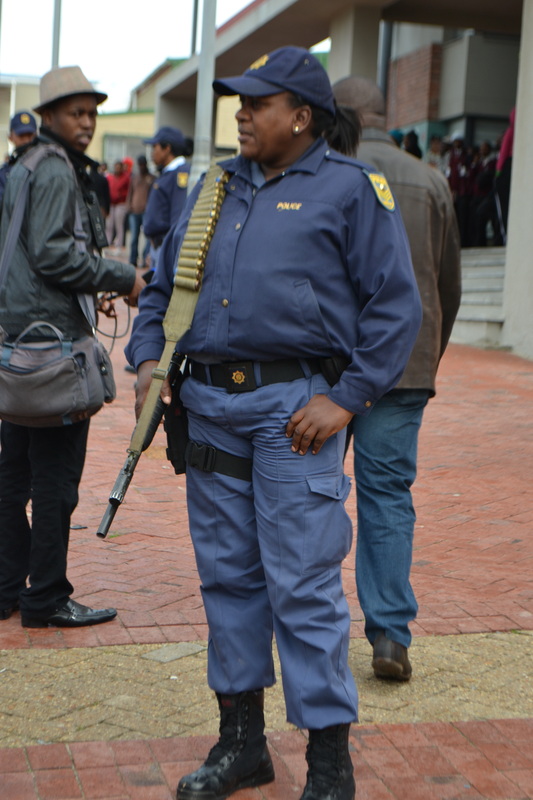
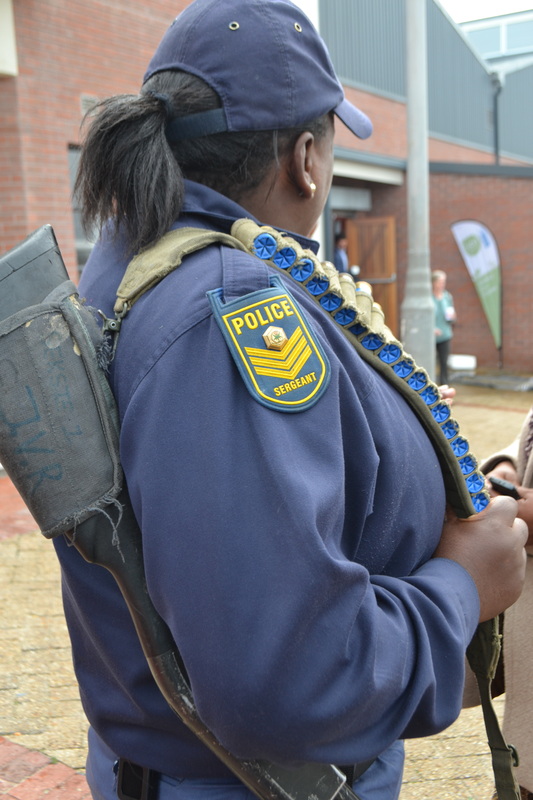


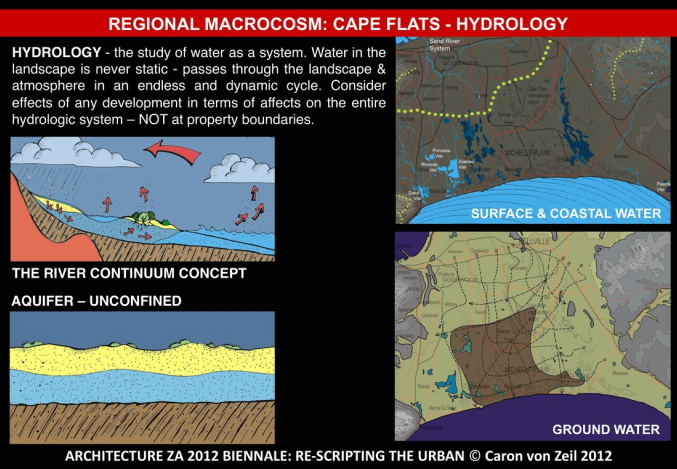
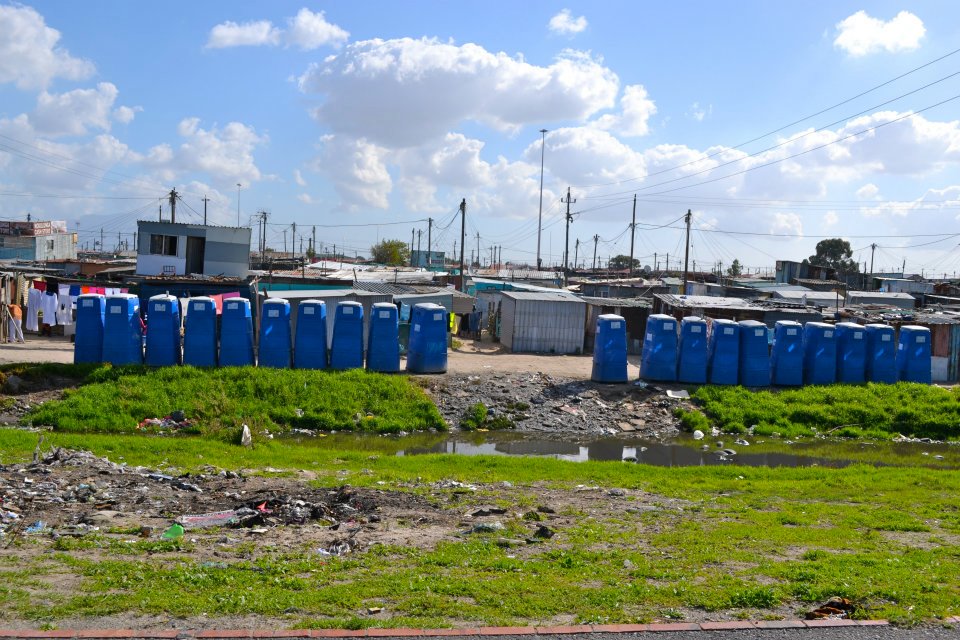



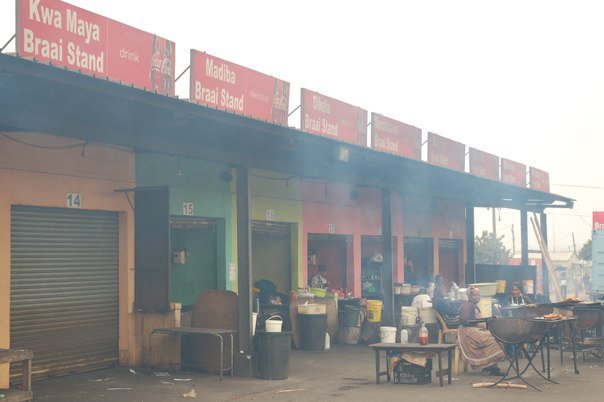
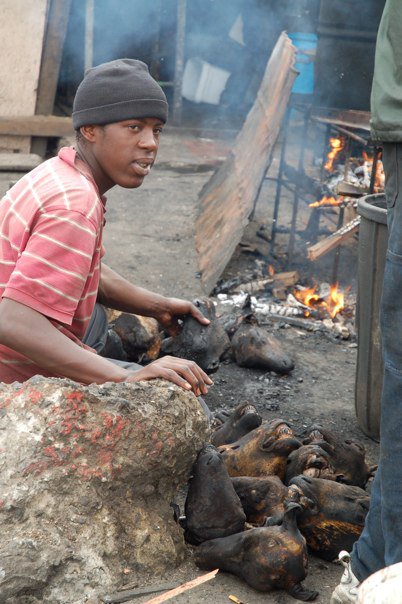
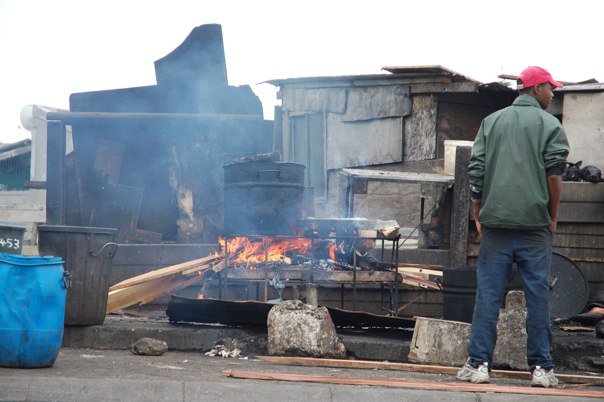
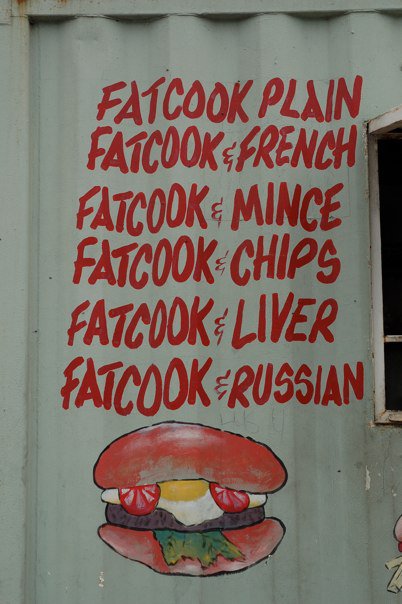
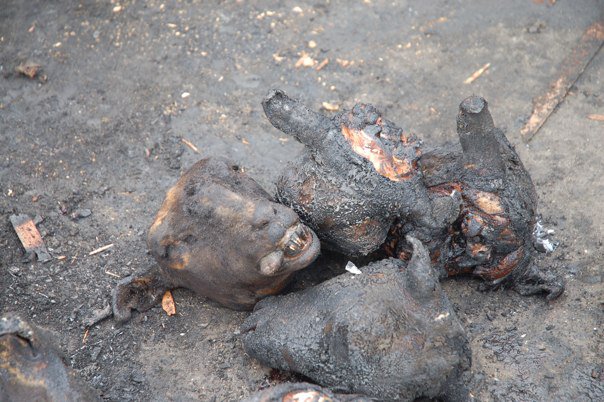
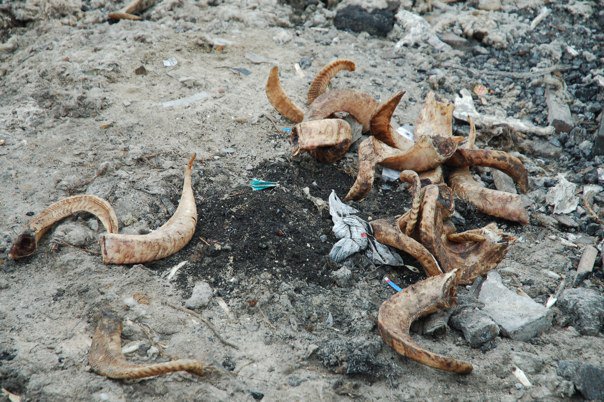
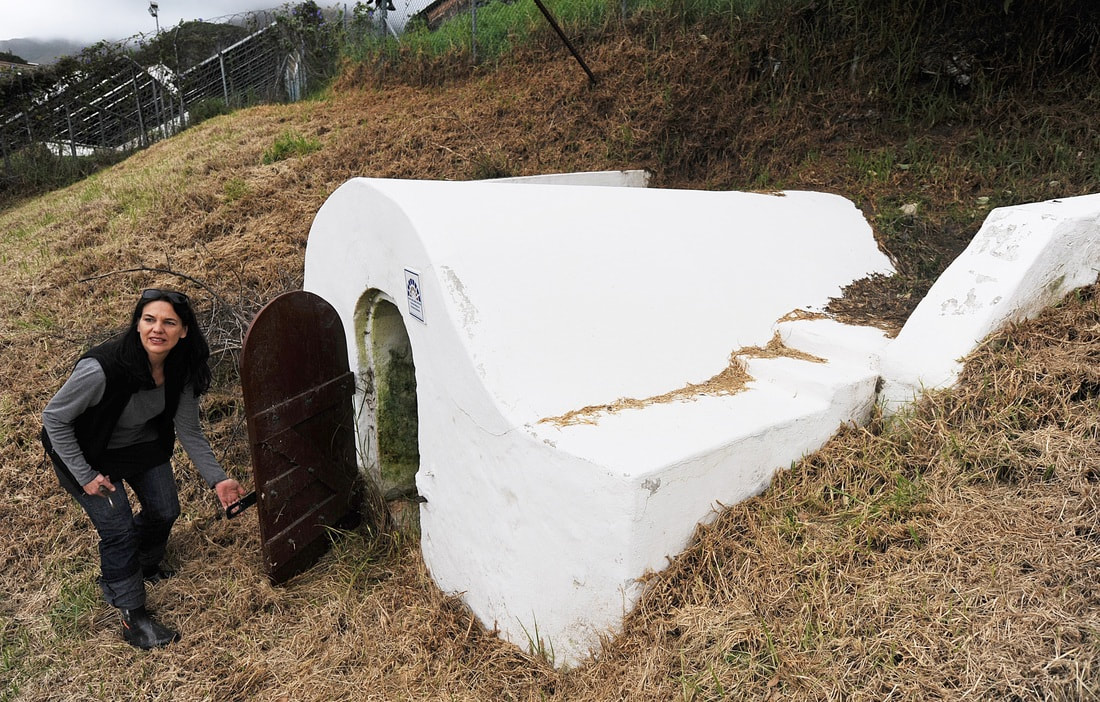
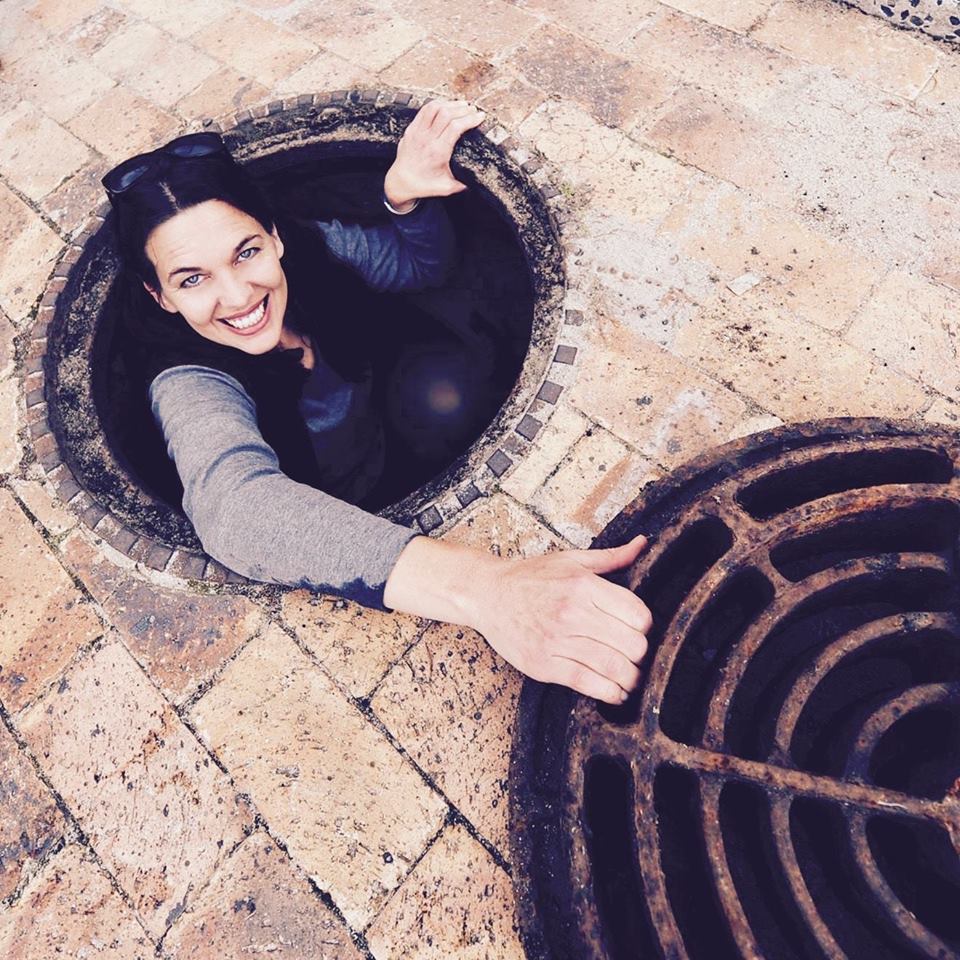
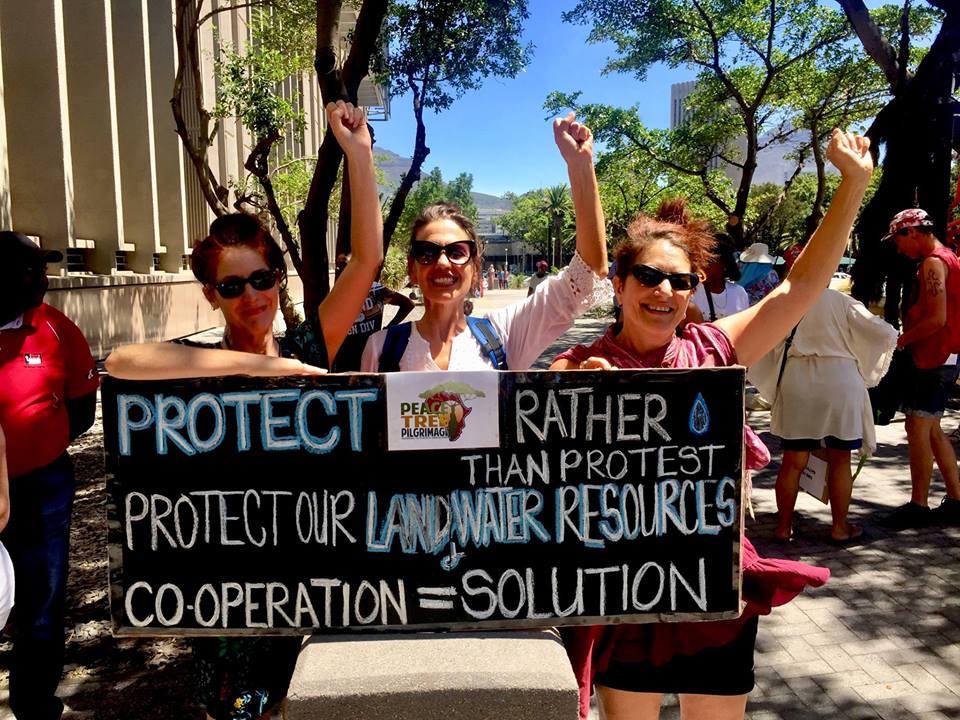
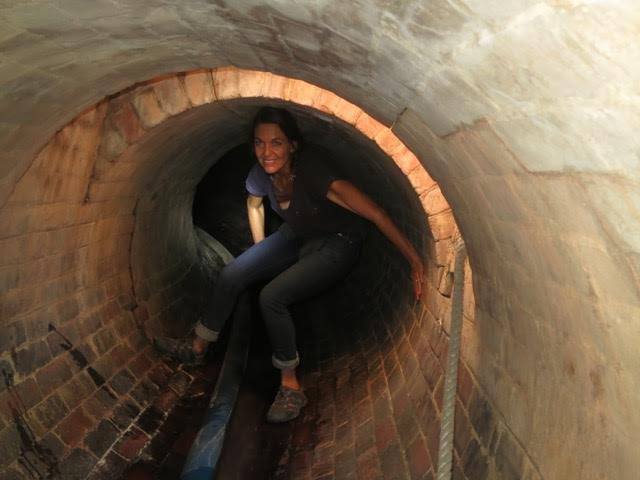
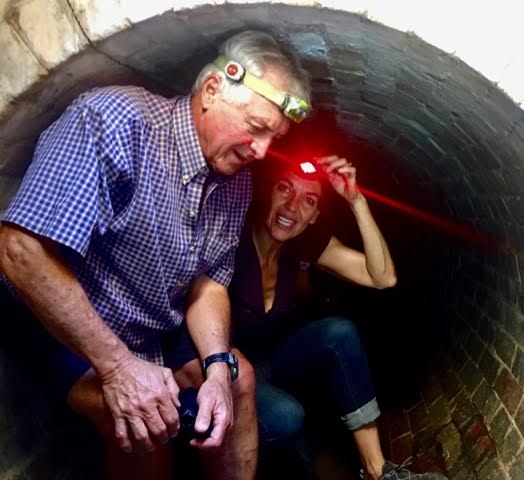
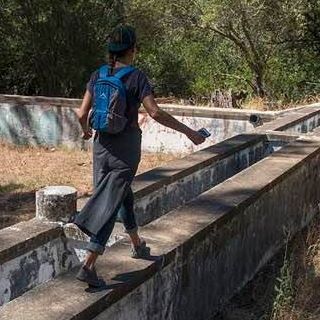
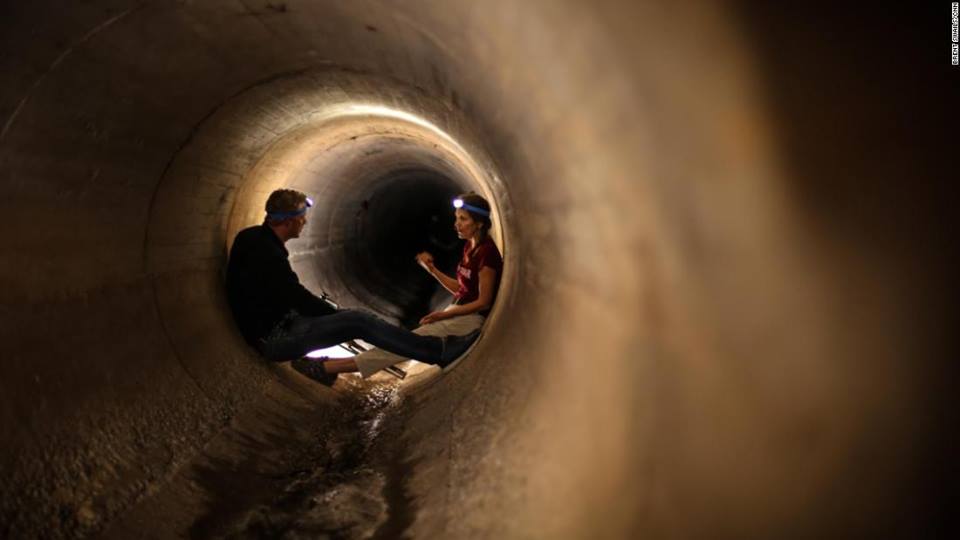

 RSS Feed
RSS Feed
